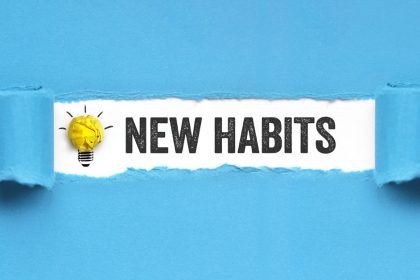
In every phase of life, we all face one time where we think that we should develop new habits, remove old habits and start building ourselves so that we can improve our personality.
But before building habits, first, let’s talk about what you understand by the term ‘habit.’, how does one person define habit from his perspective?
The routine repetition of a particular behavior is what we know as a habit. This conduct can be an activity, an everyday practice, or a way of life.
Many individuals have a propensity for dozing off with the TV on. Or then again, they clear the messiness around their work area toward the day’s end. At its most straightforward, habit is conducting you rehash without monitoring it. These personal conduct standards can be an activity, way of life, or schedule.
Not all habits are great, which is the reason we want to perceive and dispose of them. Great and solid habits are two important instruments used in self-awareness and improvement.
A positive part of the arrangement of a habit is that it doesn’t depend on inspiration. You will undoubtedly play out activity because your psyche will feel that it’s the default thing to do. Habits have the power of training or discipline in our lives.
All habits, whether they are good or bad, result from the three R’s, which are:
Reminder, Routine, and Reward.
For example, if you are hungry and it’s almost your dinner time (this is a reminder), you cook your dinner (this is a routine), and then you eat the food served at dinner (that’s your reward). Like this, various routines occur in your life without being notified by you.
Like good habits, bad habits are also involved in these routines, but now it’s time to develop new habits which are both productive and as well as healthy for your lifestyle.
A bad habit is hard to replace, especially if it’s one you’ve cultivated. Whether it’s to exercise more, eat better, or watch less TV, every one of us knows we should do some of these things. It’s hard to change, even when we tell ourselves we’ll do so. What are some methods we can use to achieve this?
We must first understand what behavior is being changed or stopped when trying to form good habits. Sometimes a bad habit motivates us to build a positive habit. By replacing bad habits with positive ones, we try to prevent destructive behavior from happening in the future.
Identify the trigger before forming a habit
Some sort of stimulus: hunger, boredom, thirst, depression, etc, influences most behaviors. Because of these triggers, we determine how to deal with them. When we respond to these triggers habitually, it becomes a default pattern for us until it becomes ingrained in our subconscious.
By identifying the trigger, you can intervene before they trigger the habit and prevent yourself from falling back into unproductive behavior.
Identify and understand the decision point
Our awareness of the triggers that lead to our behavior should increase after we understand them.
Realize your patterns by taking time to think about them. It may help to change your thoughts to recognize these or use cues such as notes to yourself, for example, to remind yourself of them.
Building a New Response
Once you recognize the pattern, you will do something about it when you recognize what triggered it. For example, when you realize your trigger is boredom, you can develop a new habit of asking yourself, “Is that something you want to do, or are you just bored?”.
Don’t be afraid to be creative and customize your response to meet your specific needs.
Replacing an old pattern
Just cutting out something will leave a gaping hole the next time the trigger comes around that cries out to be filled. Instead of cutting that habit off, try replacing it with something beneficial.
Try something productive instead of wasting your time doing something unproductive when you’re bored.
Reinforcing habits with routines
In any book you read about learning new behaviors, you’ll quickly find discussions about developing habits; things such as journaling, or other practices that cultivate intention. Many individuals find these practices to be highly effective.
As far as using them to your advantage is concerned, it ultimately depends on you. As long as you benefit from them in the future, using them is no problem.
Strategies for Developing New Habits
If you want to establish a good habit, they stack the odds against you. You need a plan to achieve it. It is not your goal to fail; it is your goal to win. Those who cannot plan intend to fail.
It can make all the difference in your success, ability to overcome obstacles, and ability to push past failures if you take some time upfront.
Creating a Failure Recovery Plan
Consider developing a plan in the event you fail when you first introduce a new habit. Failure isn’t something you should expect, but you should plan for it all the same.
One common pattern we see is people making one slight mistake and then giving up for good. Errors are relatively small, and even the smallest errors do not outweigh successes; even when those successes have yet to be realized.
These are some points you need to consider if you want to get rid of your frequently unproductive habits, which are of no use. Start addressing these factors and work for something beneficial, which might help you grow in both professional and personal ways.






